|
Following Tracey's excellent blog post about self care I wanted to talk a little bit about the methodology I have for maintaining a forward momentum in my work without falling prey to burnout. Self care is a huge part of avoiding that but I have also found several things about HOW I work can really aid in the effort not to run out of steam.
Getting the obvious out of the way first, the life of a freelancer is tough, I won't belabour the point but it's important not to overlook that. One of the advantages however is that it presents the freedom in some ways to work how you want to work on what you want to work on, with the caveat that at the end of it you still have to make sure somebody PAYS YOU FOR IT. Currently with Circle of Spears I have a number of ongoing or upcoming projects. One is the audiobook title Minstrel's Bargain by Richard Ayre. A fantastically written horror/suspense title set in 1980s Newcastle. (Geordie accents abound) As I discussed in my blog about being dyslexic and reading audiobooks for a living I work a little differently to how a lot of other voiceover artists work in that regard but that's only one aspect of the work I do with Circle of Spears. Later this month I have a murder mystery evening event based on the works of Ann Cleeves. (come along if you're in the area) It's based on her Vera Stanhope books but you don't have to have read them to enjoy it. Those of you who follow us on social media will know that coming up this June we also have a show on at Fringe Theatre Fest in Barnstaple where we are performing the new play A Different Track by Ute Orgassa. It's been over a year since we were in the rehearsal room with a new project and I know that all of us are brimming with excitement at the prospect. So with all this going on how do we keep on top of it all? Well, firstly with the audiobook stuff it helps to have a stop and start style of working especially while editing as this is for me the more mentally taxing part of the process. I've heard audio editing likened to making sausages, it's messy, time consuming, repetitive and if you saw it done it would probably spoil your breakfast. In the early days I used to pull long hours editing non-stop but after a while that only lends you diminishing returns. The brain fog descends and before you know it you feel like your brain is dripping out your ears. BUT YOU'VE STILL GOT ANOTHER CHAPTER TO DO. The key to overcoming this is working smarter, not harder. No matter what field you're in there will always be someone who can work harder and longer than you can but by working smarter you can get the most out of yourself without burning the candle at both ends. A lot of the methods I use have a lot in common with the practices taught to students studying for exams. Something I have taken to doing recently is setting myself a goal of a certain number of chapters to complete in a week. The time and means completing them is flexible but the goal is there to have something to work towards. I have found that having micro breaks during the editing process and complete screen breaks every few hours for at least twenty minutes helps wonderfully. The theatrical side of things is a completely different beast. Most of the time same rules apply there as apply to doing physical exercise. Stay hydrated, warm up beforehand, physically and vocally. There are also sometimes games and techniques we use to get into character or maintain an accent. In the murder mysteries which are very improvisation heavy we sometimes work out any little character notes and relationships. We might also do some games specifically designed to get our improvising brains into gear. None of what I have mentioned above is an exact science and the methodology I use is merely what I have arrived at after nearly 7 years working as a professional actor/freelancer in some form or another and it is always being refined. I'd be interested to know what you (Yes you the person reading this right now) do in order to avoid burnout and make your working life a little easier.
2 Comments
Today, we met up with a freelance narrator from Exeter who works in much the same way we do. It got me thinking about the nature of what we do, both as independent audiobook producers and as freelance narrators.
Our work is, by its nature, isolating. I’m either in front of the microphone, narrating, or in headphones editing my sound files. Although it’s fun, it’s not the most social of jobs! It also doesn’t give me much opportunity to listen to music, audiobooks or podcasts while I work. After an editing session, I’m quite happy to take off the headphones and enjoy some silence for a while. We have regular staff meetings, where we get together, rather than chatting online, and I always find that this is really good for recharging my batteries and enthusiasm. I’m not the best at self-care. I work very long hours, most of which are in isolation. That’s why I always notice a significant uplift in my mood after a social event. It was the uplift I experienced today which made me think about how I work. It’s easy to get immersed in your job, isn’t it, especially when you’re self-employed? That’s why it’s imperative that you set aside some time for yourself. Put down the headphones and step away from your work environment for a while. Find other creatives in a similar line of work and spend some time just talking. When you have a rather unusual job with few peers locally, it’s so lovely to meet someone who does something similar and with whom you can share information, moans, successes, concerns, advice and ideas. At Circle of Spears, we always try to have some downtime during December, with varying degrees of success depending on what we’re working on. Our most recent audio title, Adrian Tchaikovsky’s Tales of the Apt: Spoils of War was released at the end of November and we had arranged the remaining projects so that December is completely clear apart from marketing and any admin. I’ve already noticed the difference and have resolved to plan my working week more carefully from January onwards so I can factor in more downtime and take better care of myself. After all, I wouldn’t be able to complete many projects if I was ill… So be kind to yourself. Find someone to chat to, either online or in person. Nurture your creative spark and keep it alive. Fresh ideas are vital for maintaining your enthusiasm for the work, as well as encouraging you to look objectively at what you do and how you could improve it. But don’t just focus on the output; focus on yourself and how to make your work environment as pleasant as possible. Stay hydrated! Join organisations which support people in your line of work. And – most importantly – PLEASE ask for help if you need it. - Tracey Tracey has been chatting with some of our authors recently - you may have seen some of the snippets we've shared on our social media platforms. Here is what David Wake, author of The Other Christmas Carol, had to say in response to our 10 Questions:
Tell us about your favourite place to write. I’m not sure where I normally write can be described as my favourite place.You sometimes have to put aside your surroundings and just get on with it whatever the circumstances.I do write in my front room, which is pleasant, but not ideal.So, I’m decorating a room to make the perfect writing space.It won’t be.The perfect writing space is inside your head. What inspired you to become a writer? You have an idea, which niggles at your imagination, pesters, ferments, percolates and demands to be written... therefore you become a writer to get it out.Until the next one, of course. What do you do when you are not writing? Feel guilty about not writing. Do you listen to music while you’re writing? If so, what’s on your playlist at the moment? Yes and no. Sometimes it’s impossible circumstances again but when I can I have an appropriate soundtrack on in the background.It can’t be anything too recognizable: Star Wars just makes you think of Star Wars.But there are so many films that there’s bound to be something exciting, moving, scary, romantic or whatever to suit a mood.(Aside: there’s a soundtrack playing right now and I’ve no idea what the film is... Z for Zachariah – never even heard of it, but it’s slow, thoughtful piano that seems to suit.) What’s the best piece of writing advice you’ve been given so far, and why was it so significant for you? Write regularly. Create a sacred space and time, if you can, that’s set aside just for writing.If not, then just struggle through.Practice makes perfect.You get better at anything if you keep going. And allow yourself to write crap. Odd advice, but when you are writing a first draft, your right brain hemisphere, the creative side, is doing all the work.However, the logical side, the left-side sits upon your shoulder getting bored.It’ll point out a spelling mistake, an ungrammatical sentence, a badly phrased paragraph, a poorly plotted chapter and so on and on and on.And you listen to this voice and give up.But often you need a run up to get to the gold.Sure, you need both hemispheres, but not at the same time, so save the left for the rewrite, because, very, very often, what it says is crap turns out to be perfectly fine once you’ve corrected that spelling, adjusted that grammar, rephrased that paragraph and plugged that plot hole. Tell us about your current work-in-progress. I’m writing the third in my Thinkersphere series.(Or rather, I’m writing my answers here to avoid getting on with it.) Out of all the characters you have created, who is your favourite – and why? My Deering-Dolittle sisters from my Derring-Do Club series.But actually, Cindy from a theatre play just wrote herself.After spending so much time making sure characters were consistent, it was a joy to write a character who was inconsistent. “...you only have to take one look at you to know that you always judge a book by its cover.” Who is your favourite author and what is it about their work which appeals to you? It ought to be myself. You should always write what you want to read, so I’m the author who writes exactly the stuff I want to read. Except that I know what happens at the end. Philip K. Dick, J. G. Ballard, Arthur C. Clarke, Iain M. Banks anyone with a middle initial really and Frank Herbert and Andy Conway... I always hope I’ll discover someone new, something the like of which I’ve not read before, the next great thing before anyone else. Tell us two things about yourself that most people probably won’t know! I invented the Drabble and I have a full-sized TARDIS, but people probably know that. If you could choose which century to live in, which would you choose, and why? The one I lived in, the latter half of the 20th and early 21st. Antibiotics worked. That’s not true of the previous ones and it looks like it won’t be true of the next few either. Oddly, I think it’s also been the Golden Age of Writeability - the infinite number of stories has been getting wider and larger, but now technology is making things too easy to solve. Your phone has an App for whatever plot obstacle needs solving. Any time since the invention of the word-processor, so I can write. Anything else you’d like to add? I think ten questions is enough. Adding another is an affectation. I have more to say, but I’ll put those thoughts into the next novel. I have this idea, you see, niggling away, demanding to be written... Thanks for sharing, David! (and thanks for adding the last question, too!) Tracey has been chatting with some of our authors recently, and we've shared some snippets across our social media platforms. Here is what JT Scott, author of Sammy Rambles and the Floating Circus, had to say in answer to our 10 Questions:
Tell us about your favourite place to write. Great question! I don’t have a favourite place to write. This is simply because I’m not in any one place for long enough to write a lot at once. I tend to think about my stories, the characters and the adventures, obstacles, triumphs and adversaries all day long and write things down whenever I can. Then when it comes to typing things up, I use a laptop and have been known to write in the car, in the garden and every room in the house. What inspired you to become a writer? Looking back, it was probably the love of reading other people’s stories, the adventures they shared and wanting to try it myself. I used to create adventures for my Playmobil and Lego characters and write short stories for them to act out, and so I could remember what happened when the toys had to go back in the box and be tidied away. What do you do when you are not writing? I really enjoy meeting up with friends, catching up on their news, walking and photography. I also play a lot of sport and it’s been exciting recently to begin developing Dragonball as a recognised sport from my Sammy Rambles series. Do you listen to music while you’re writing? If so, what’s on your playlist at the moment? Sometimes having music (or noise) in the background really helps with my writing. It’s about creating a bubble to write in with things going on outside. It could be the football on TV, or repetitive arcade music. One of my favourite writing and thinking songs is Soldiers of the Wasteland by Dragonforce. What’s the best piece of writing advice you’ve been given so far, and why was it so significant for you? The best advice was “you can’t edit a blank page” meaning it’s better to write something, anything, and then chop and change it later. It means you may not write your best words straight away and how it’s important to spell check, proofread, read aloud, etc. to make sure the words which you publish are the best they can be. Another quote is “hard writing makes easy reading” along the same theme. Tell us about your current work-in-progress. As usual, I’ve got several projects started. One project is telling the story of a bumblebee meeting friends in the garden who offer advice on how to fly, with an underlying theme that it’s ok to be yourself. This will be book one in a seven-book series. The second project is following a female protagonist, a detective who can talk to animals to solve problems. Out of all the characters you have created, who is your favourite – and why? This is such a hard question! I love Sammy Rambles and he has helped me through a difficult part of my life, my ticket out into the wider world, helping me with depression and anxiety through his ability to have that self-belief and empowerment that he can solve everything I throw at him. In the Sammy Rambles books there is a character called Karmandor which represents the three things I hope to achieve (Kar or car, transport, the freedom to travel. Man, or companion, a friend to share adventures with. Dor, a play on the word d’or or gold, representing treasure and earning my own money rather than relying on anyone else). Who is your favourite author and what is it about their work which appeals to you? I still enjoy reading books written for children, although I mix up my reading with crime, thriller, romance, anything that looks good and reads well. My favourite book is still The Weirdstone of Brisingamen by Alan Garner as the story has a great twist and turn and the moral that maybe sometimes you should just keep on going. Tell us two things about yourself that most people probably won’t know! I used to want to be a rally driver and I learnt to write left-handed so I could keep writing when my right hand hurt from writing too much. If you could choose which century to live in, which would you choose, and why? It’s taken a long time to be happy in the here and now, so I don’t think I’d change centuries. Thanks for sharing with us, Jenny! I know what you're thinking ... I'm going to tell you that it is important that you book tickets to our shows so that you don't miss out because they are always so popular...
Well, while I will happily admit that this does happen, and that we love it when it does, that isn't what is on my mind as I write this blog. It is more the case that it is important to book tickets to make sure that you don't miss out because we don't perform the show. Now, we are not in the habit of cancelling shows. In fact, some of our shows are designed to be intimate and sometimes smaller audiences work in the show's favour. But it happens to every smaller-scale professional company from time to time. Larger companies on a UK tour with many thousands of pounds behind them don't have quite the same worries. But for those of us (and many of our professional colleagues are in the same position) who have to self-promote, find innovative ways of ticketing and funding, and travel in the cheapest ways possible to make shows viable, advance bookings are essential. I have heard numerous stories of companies who have had to cancel shows because it would have cost money to go ahead for the size of the audience, only to find out afterwards that lots of people are commenting on their social media expressing disappointment because they were going to come on the night. Smaller companies cannot, unfortunately, always take a gamble on walk-ups. So, if you like the kinds of things that we do, please help us (and many of our colleagues) by not only following and sharing our blogs, social media and other communications, but also by booking tickets in advance if you want to see a show that we are putting on. We have been fortunate thus far that the vast majority of our shows have gone ahead. But as we find ourselves being asked to travel increasingly larger distances to perform by our audiences, we are very mindful of this issue. Thank you. Mark Today we are delighted to welcome our author David Wake to the blog. As June is National Audiobook Month, we have been showcasing each of our authors and their fantastic audiobooks. David very kindly agreed to share with us the inspiration behind The Other Christmas Carol (which you can download here) So, David... where did the idea for The Other Christmas Carol come from? It's been a cold June. It reminds me of when I was going slowly insane. I used to do technical stage management and had a gig running the Christmas Show at the Tamworth Snowdome. I'd collect the cast in the dark and drive them through the cold, dark, snow-covered early morning to arrive at the wonderfully warmed reception, then we'd go into the refrigerated snowdome itself. After tramping through the snow covered inside, we came to our 'green room', which was thankfully heated. And then, like another Russian doll, inside that was a fridge to keep our milk cold. The heat being pumped back and forth was an environmental nightmare. We did 475 shows in 27 days. Hearing 'Frostie the Snowman' made me twitch. Father Christmas was wonderful, but incredibly blue in his anecdotes off-stage. I spent the time huddled around a heater (in the snowdome) trying to keep warm and watching it all on a small TV set ready to raise the lights, hit the music cue (not 'Frostie' again!) or rush out to head off some disaster or other. But mostly it was just sitting there being cold. I had to do something to keep sane, so I took my laptop in to write. But I couldn't. I needed to be ready for the lighting and sound cues, and it was just too cold to type. Instead, I spent ages staring at a single screen, gradually working out an anti-Christmas story, slowly changing the bullet points during the non button pressing sections of the show. When it was all over, I thought I'd see if I could type up the story within the twelve days of Christmas. It turned out that this was no challenge at all. I didn't need the whole dozen, the words just flowed out of me. And it's not that anti-Christmas, either. More a dig at the commercialism. This was the screenplay. Much later, I re-wrote it as a novella. And later still, Tracey Norman of Circle of Spears narrated it to make the quite wonderful audiobook. Go and have a listen, because it's a story that's not just for Christmas, but also for this cold, cold June. That's a great peek behind the curtain, David - thank you so much for sharing it with us. And thanks also for your kind words - nothing makes our day more than an author who likes what we have done with their words! It occurs to me that the story of how Circle of Spears began as a company is not something that we've talked about much in a public forum so here for the first time I shall present an abridged version of how we all ended up making audiobooks and theatre together.
Back in 2015 I met Tracey and subsequently Mark as we actory types often do through a show Tracey and I were part of. Shortly after, Tracey invited me to take part in a freelance audio project she and Mark were working on. The project itself was fun enough to do but the person behind it was less than stellar. Having enjoyed collaborating on someone else's project though we were keen to do one of our own. We all had our own home recording set ups, we all had a background in theatre and the performing arts, pooling our resources seemed like the obvious thing to do. People sometimes ask us where the name Circle of Spears came from. There are two answers to this, both equally true. The first is that the image of a group of individuals coming together to create something greater than the sum of their parts is something that has always been very intrinsic to our ethos as a company. So long as there are enough spears to form a circle (two or more) we had a group of creatives whose skill sets and enthusiasm constantly fed back into the whole group. Initially there were five members of Circle of Spears and we've had as many as eight working on a project at one time but the number of individuals doesn't matter, what they create together that they couldn't create alone is the thing that matters. The second answer is at the time we founded the company I was running a Dungeons and Dragons game featuring everyone who was in the company at that time and the group of adventurers they were playing as in that game were also called The Circle of Spears. The real life parallels of comradeship, shared goals and values was not something lost on any of us. In the four years, numerous productions and now over twenty audiobooks that have followed we've had our ups and downs, people have come and gone, but our goals and what keeps us coming back to the company remains the same. We all want to make a living bringing stories to life and doing things together it would be impossible to do alone. -Sam 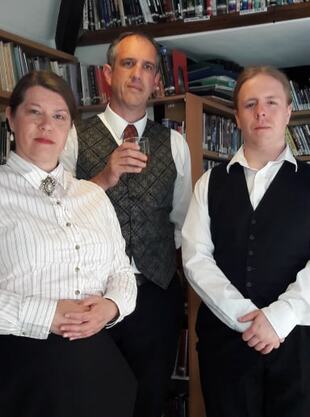 We were delighted this week to be able to confirm a new performance date for our "Victorian Evening of M.R. James" Ghost Stories show. Next month we will be heading up the motorway to Somerset, where it will be our pleasure to provide some late night campfire entertainment for the resident campers at this year's Nudefest Festival. Nudefest is the biggest event in the naturist calendar in the UK, so it is an honour for us to be joining the slate of excellent entertainment being put on during the week long festival. This will be an interesting performance for us. Firstly, they say that if you suffer from nerves, then you should imagine your audience naked, but this is the first time where we will not need to imagine at all. And secondly, this will be an (almost) outdoor performance which is another first for this show. We will be in a marquee, with a real campfire just outside. We hope that the darkening night and the flickering flames will add an extra element of suspense and atmosphere to the evening. If you're interested in learning more about the Festival, please visit https://www.nudefest.co.uk/ 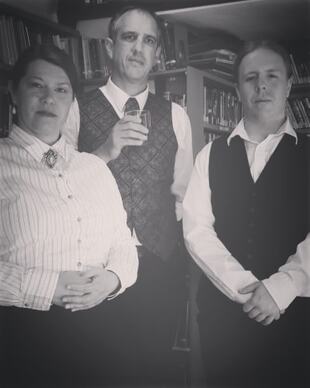 We all had a great time last night at the Museum of Witchcraft and Magic, where we once again shared our "Victorian Evening of M.R. James" show with an appreciative audience. This is our third year of telling ghost stories live, the way that they were meant to be told, and it has been interesting working with a new format of all the stories coming from one author. Of course, it helps if that author is very popular in the genre! While were we there, we took the opportunity of taking a new publicity shot for the show, which Tracey subsequently converted to give it a more Victorian feel. Here is what we came out with. Pictured are, from left to right, Cousin Alice (Tracey), Cousin Henry (Mark) and his school friend Archie (Sam). Not pictured is Cousin Edith on the piano! We were delighted to receive this five star review recently for this show, from an audience member who is a big M.R. James fan and who drove from Birmingham to Cornwall to see us perform. "I would definitely recommend this to anyone. Great atmosphere and a great reading of the stories. Shall be looking forward to the next time. 10/10" Thank you for taking the time to leave a review for us. We're glad it was worth the drive! ~ Mark One thing I particularly like as a writer is when people show interest in the inspiration behind my writing. I enjoy sharing the anecdotes or fun facts that have worked their way into my stories. So it was with great interest that, as part of the background work for our current audio project, Adrian Tchaikovsky's Tales of the Apt: Spoils of War, that I turned to the notes Adrian has kindly shared with us.
These are not just any notes. These are the notes he had written when working up the world of the Apt as an RPG (role-playing game). And what a treat they are to read! After a few short minutes, I was completely lost in the richness of his descriptions, seeing in my mind's eye the world of the characters whose stories I've read in the book. I had intended to write notes for myself as I went along, but I became so immersed that note-writing was forgotten. There is so much detail. Everything is covered - food, terrain, history, science, magic. They have been inspirational not just for my own writing (eg: I really need to make better notes when world-building!), but also on how to better portray the characters Adrian has created. Reading the stories is one thing, but having the author's personal notes backing them up is quite another. We're very lucky to have access to them and we are really looking forward to being able to share the audio version of Tales of the Apt: Spoils of War with you later this year. (posted by Tracey) |
AuthorPeriodic updates from Sam, Mark and Tracey Archives
February 2020
Categories |

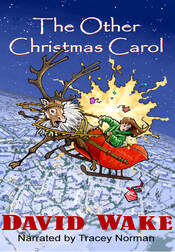
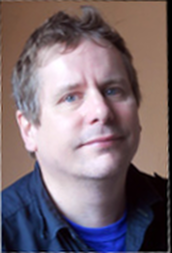
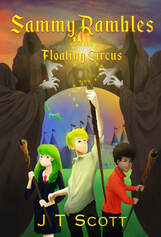
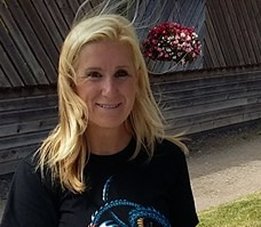
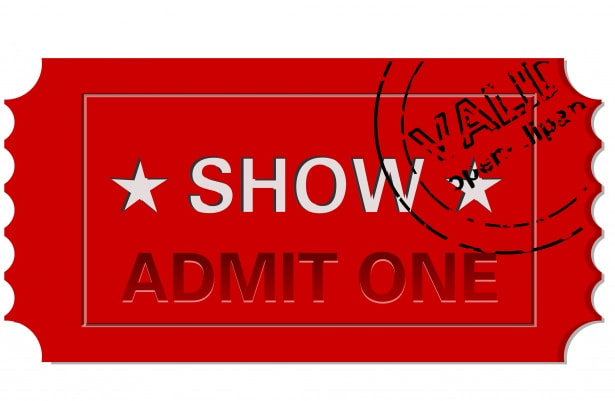

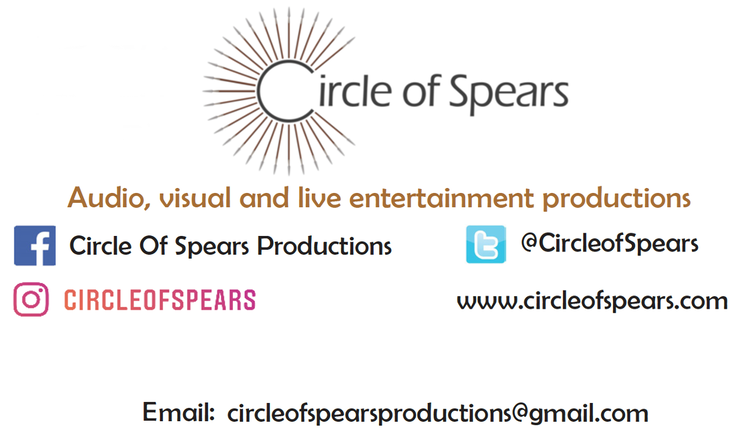
 RSS Feed
RSS Feed
